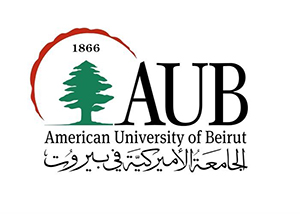بحث الجامعة الاميركية: منطقة شرق المتوسط قد تصبح المحور العالمي للطاقة شرط ان تقوم دولها الساحلية بترسيم حدودها البحرية وفقا لقواعد القانون الدولي

“فتح ابواب السلام والازدهار: كيفية حل نزاعات الحدود البحرية في شرق البحر الأبيض المتوسط” بحث علمي وعملي حققه رودي بارودي الخبير في صناعة الطاقة منذ أربعة عقود وقد نشر بالاشتراك مع معهد عصام فارس التابع للجامعة الأميركية في بيروت ، وهو يقدم للمهتمين تحليلا واضحا للأبعاد الحاضرة والاستنتاجات المباشرة.
بدأ بارودي بوصف احتياطيات المنطقة المؤكدة والمحتملة من النفط والغاز الموجودة في اعماق البحر، وتحديداً كيف يمكن الاستغلال الآمن والفعال لهذه الموارد أن يحول الاقتصادات الوطنية وان يؤثر على العلاقات المضطربة في كثير من الأحيان بين الدول السبع (اليونان وتركيا وسوريا وقبرص ولبنان وفلسطين / إسرائيل ومصر). ثم يشرح كيف أدت الخلافات الحدودية العالقة إلى الحد من عمليات الاستكشاف والتطوير البحرية في معظم المنطقة – ويخلص في هذا الفصل الى شرح كيف يمكن أن تؤدي التوترات بين الدول إلى مزيد من عدم الاستقرار وحتى الى الحرب.
بعد ذلك يفصل التقرير آفاق حل النزاعات البحرية، ويوضح أنه على الرغم من ظواهر الامور المعقدة، فإن أدوات الحل بسيطة ومتاحة بسهولة. الحل الوحيد بحسب بارودي أن تتبنى الحكومات المعنية وبشكل كلي، المبدأ الأساسي للأمم المتحدة والنظام الدولي برمته الذي تم العمل عليه منذ الحرب العالمية الثانية: أي الحل السلمي للنزاعات. وبمجرد اقرار هذا المبدأ ، فان أبحاثه تؤكد أن مزيجًا منطقيا من القانون والعلوم والتكنولوجيا يجعل ترسيم الحدود البحرية عملية بسيطة وسهلة وتفيد جميع الأطراف.
باختصار، يؤكد التقرير بأنه على الرغم من أن بعض المراقبين والنقاد والسياسيين فقدوا صبرهم من نظام وقواعد الحلول الذي تقوم عليه الأمم المتحدة منذ عام 1945، إلا أننا في الواقع علينا اكتشاف المدى الكامل لفائدة هذا النظام – ليس فقط في منع الصراعات المسلحة ، ولكن حتى في إزالة بعض الأسباب الأكثر شيوعًا للنزاعات في المقام الأول. من الناحية النظرية على الأقل ، اهمية هذه القواعد وهذا النظام يكمن بأن الدول الصغيرة لم تعد تحت رحمة الدول الكبيرة لأن الجميع لديهم نفس سبل الوصول إلى الوسائل القانونية لحل المشاكل العالقة فيما بينهم اضافة الى الأدوات اللازمة لممارستها.
يوضح التقرير أيضًا كيف أن التقدم التكنولوجي يجعل من الممكن رسم المعالم الجغرافية – حتى في ألاعماق البحرية- بدقة غير مسبوقة، مما يعني أن تحديد الحدود البحرية هو امر سهل ويمكن القيام به في حال توفر الارادة لدى الافرقاء. وحتى إذا لم يكن بالإمكان الاتفاق على الحدود الفعلية لسبب ما (سياسية في الاجمال) ، فإن الأدوات القانونية الحديثة لديها أيضًا آليات يمكن من خلالها للمدّعين المتنافسين مشاركة الإيرادات أو الابتعاد عن بعضهم البعض وحتى إنهاء نزاعاتهم حبيا او قانونيا. ويؤكد بارودي بان المفقود لدى القيادات الوطنية هو الحس السليم والإرادة الطيبة للتوصل إلى مثل هذه الاستنتاجات.
ويردف أنه بمجرد أن يلجؤا الى مثل هذا الاجراء، فإن الواقع الحالي – في الشرق المتوسط على الأقل – يمكن أن يعرف تغييرًا حقيقيًا في قواعد اللعبة الحالية. فالدول التي ستنتج الغاز ستخفض حكما تكاليف الطاقة الوطنية الخاصة بها ما يولد عائدات كبيرة من الإنتاج و/ أو الصادرات، وحتى الدول غير المنتجة ستستفيد من استضافة مرافق المعالجة أو النقل. وفي أفضل السيناريوهات، قد تنضم البلدان الأكثر حظًا إلى خطة إقليمية لتقاسم العائدات. ستسمح هذه التحسينات المالية باستثمارات طال انتظارها في التعليم والرعاية الصحية والنقل والبيئة والمياه النظيفة والحد من الفقر. اضافة الى استقرار سياسي، اذ سيكون لكل من الخصوم المعتادين (مثل إسرائيل ضد لبنان، وتركيا مقابل قبرص، واليونان مقابل تركيا، إلخ…) حافزًا مستمرًا للتقليل من الاحتكاكات التي قد تعطل ازدهار الاستفادة من الطاقة.
رودي أ بارودي، لبناني الجنسية، يشغل حاليًا منصب الرئيس التنفيذي لشركة الطاقة والبيئة القابضة، وهي شركة استشارية مستقلة مقرها في الدوحة، قطر. بعد أن قدم المشورة للشركات والحكومات والكيانات المتعددة الأطراف بشأن السياسة الفضلى في الطاقة، تركيزه الحالي يقوم على ضمان أن تبدأ صناعة الطاقة الناشئة في وطنه بداية صحية وصحيحة من خلال منع الفساد، وتجنب النزاعات الدولية، وتأمين مشاركة كبرى شركات النفط العالميةفي عمليات الاستكشاف. نتيجة ظهوره المتكرر في وسائل الإعلام والمؤتمرات، أصبح أحد أبرز المؤيدين لـ “مكاسب السلام” التي ستؤمنها تنمية الطاقة الإقليمية لجميع دول شرق البحر الأبيض المتوسط.
تم تأسيس المعهد في عام 2006، وهو يشدد على البحث المستقل في السياسة العامة والشؤون الدولية، بالإضافة إلى “سد الفجوة بين الأوساط الأكاديمية وصناع السياسات”، خاصة فيما يتعلق بالعالم العربي. تتضمن أهدافه إحداث تأثير من خلال “إعلام عمليات صنع السياسات والتأثير على النقاش العام”.
رودي بارودي



